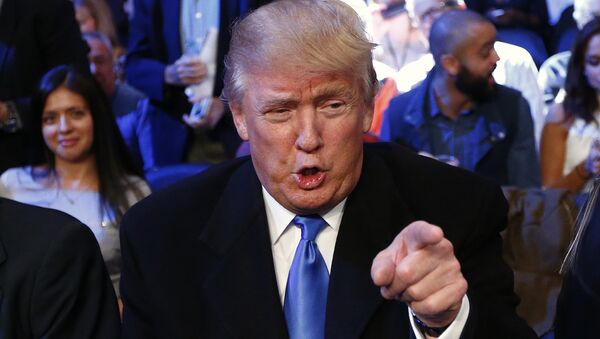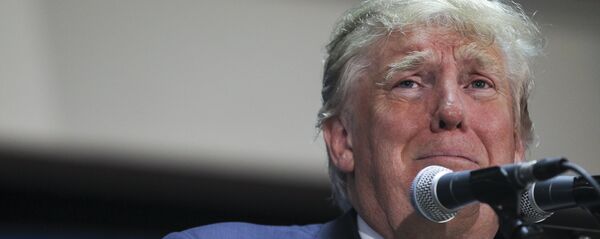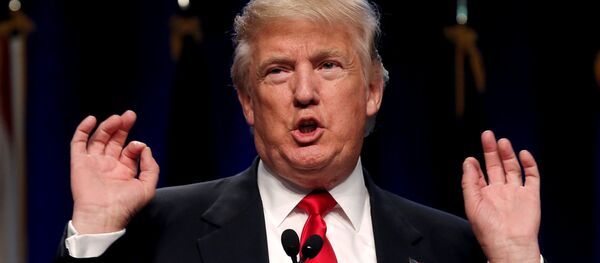Kristian Rouz – The Republican presidential nominee Donald Trump, if elected in November, is likely to be a major game-changer, and not just for the US economy: for the entire system of international trade and the global financial markets. Part of the reason is his economic program, which suggests a re-orientation of US output toward the supply-side.
In a very similar fashion to Brexit, the markets have not realistically weighed the prospect of Trump being elected until very recently. The indications are, as a stock market tumble and greenback surge followed recent polling that showed Trump’s 3-point lead over his Democrat rival in the key contested state of Ohio, a GOP victory, just like Brexit, could be a massive short-term shock to the markets, affecting the value of the dollar, safe haven assets including Treasury bonds and gold, and redefining the destiny of the $432-billion volume of trade between the US and mainland China.
“For all of the faults actual or perceived about Donald Trump, he does have a wealth of experience,” Atul Lele of Nassau, Bahamas-based Deltec Bank said. “He has dealt with higher interest rates, and has been at the coal face of where rates should be … this environment where you’re borrowing for 30 years at four percent, it’s unnatural (to Trump).”
Aside from the policy factors, Trump’s intent to slap manufactured goods imports into the US, primarily from mainland China, with high customs tariffs, up to 45pc, would prove a major blow to Chinese industrial production, which is already faltering in the mire of factory-gate disinflation. While lifting consumer prices and broader inflation in the US, the “Trump tariff” would push mainland China into a Japan-style prolonged period of across-the-board disinflation, exacerbated by a higher debt-to-GDP ratio.
"A loss of GDP or a slowdown in GDP growth of this scale would be staggering," Kevin Lai of Hong Kong-based Daiwa Capital Markets wrote in a paper entitled "What would a Trump presidency mean for China." "Eventually, Trump and his administration may actually compromise with a watered-down version of tariffs."
Meanwhile, gold, among other haven assets, would get a substantial surge in value. Investors’ fear of change – it hardly matters whether it is for better or for worse – would result in a spree of Treasury, gold, yen, Deutsche Bund, and Swiss franc-buying.
Nonetheless, again, as in the case with Brexit, all these highly-volatile events and situations will last mere weeks, with a subsequent return to the norm. However, the market participants will be closely watching every move of the Trump administration, as any intent of a large-scale reform stirs widespread suspicion initially. If elected, Trump’s main near-term goal would be wining the trust of the open market while pushing through with the fulfillment of his election promises.




